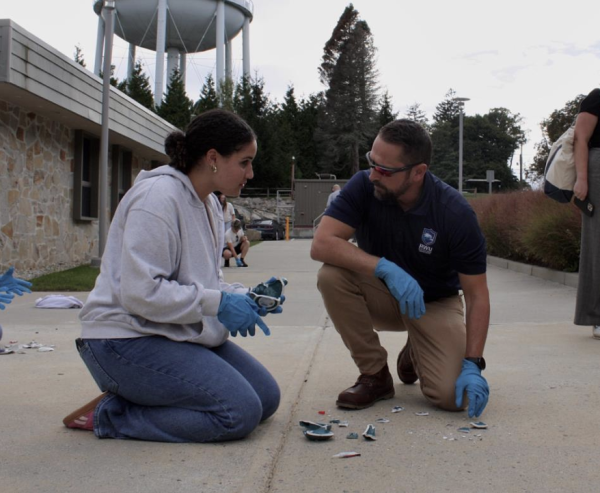Class works toward improving environment: Student-led projects address wildlife, animal welfare
In the modern age, protecting the environment and its resources has become an increasingly important concern. Students in the course entitled “Living Nature: Animal Studies to (Deep) Ecological Ethics” are dedicated to making changes on campus to better the environment.
The class is run by Professor Sargon Donabed, who helped guide students through the proposal portion of the project and sort out some of the details. However, junior Brett Johnson, a member of the special topics class, says that the projects are predominantly student run.
At the beginning of the term, class members were assigned a semester-long project; they had to think of an environmental issue occurring on campus or in the nearby area that they could create and implement a solution for. They began by writing a proposal, which required extensive research and brainstorming three solutions that could work. Students then had to narrow their solutions down to one that could work, and one that would spark an immediate result. The three finalized projects included building houses for feral cats on campus, creating awareness of trash and trying to get a campus-wide cleanup, and establishing a pollinator garden.
Johnson is in the group working on the pollinator garden that is currently planting pollinator-friendly flowers in the garden boxes behind the MNS pond. They were originally working to get hives for honey bees on campus, but students ran into financial obstacles, and the possibility of being held liable for the bees swarming or others being stung. It was also realized that a focus on managing bees would essentially be looking at bees as livestock, which is not necessarily ethical. Additionally, the group decided that it was unfair to only focus on bees when there are a number of other pollinators that are just as important as bees.
Each project group has different plans to implement its creation on campus. The feral cat group is currently building their house using environmentally-friendly supplies. They are also recording all building plans so future students can follow along and build more houses. Those focusing on trash awareness have composed a short documentary depicting the trash around campus and Bristol, and are planning to assemble a campaign regarding the issue. In addition, this group is trying to see if it is possible to organize a campus-wide cleanup.
Johnson acknowledges that the project she is working on, the pollinator garden, is her favorite out of the three. However, she says that all of these projects are important to have on this campus.
“People need to be made aware of these issues on campus and learn how to deal with them to make our campus cleaner and greener,” she said.
Besides the environmental projects, the class itself does feature an interesting requirement; students must be able to commit to working two hours a week at the Potter League for Animals in Middletown, Rhode Island. Students have the responsibilities of cleaning the kennels, which Johnson claims is not the most pleasant job, but a necessary one in terms of keeping the venue running smoothly. It has become easy for her to relate the skills she learned in class to the service process.
She commented, “I have found that although that is my basic responsibility, I am implementing the ethics and theories I have learned in class to this volunteering opportunity. Nonhuman animals are just as important as humans and should be treated as such.”
Between service to animals in the community and calling attention to environmental issues while implementing change, members of this course are certainly making a splash on campus and beyond.






